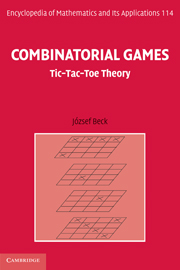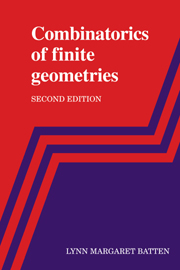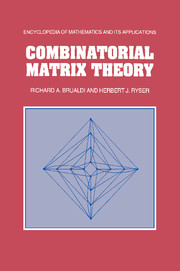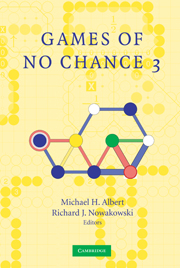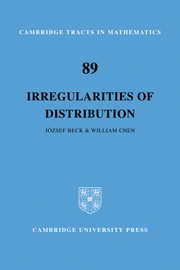Combinatorial Games
Traditional game theory has been successful at developing strategy in games of incomplete information: when one player knows something that the other does not. But it has little to say about games of complete information, for example, tic-tac-toe, solitaire and hex. The main challenge of combinatorial game theory is to handle combinatorial chaos, where brute force study is impractical. In this comprehensive volume, József Beck shows readers how to escape from the combinatorial chaos via the fake probabilistic method, a game-theoretic adaptation of the probabilistic method in combinatorics. Using this, the author is able to determine the exact results about infinite classes of many games, leading to the discovery of some striking new duality principles. Available for the first time in paperback, it includes a new appendix to address the results that have appeared since the book's original publication.
- Learn how to escape the combinatorial chaos using the fake probabilistic method to analyze games such as tic-tac-toe, hex and solitaire
- Unique and comprehensive text by the master of combinatorial game theory: describes striking results and new duality principles
- With nearly 200 figures, plus many exercises and worked examples, the concepts are made fully accessible
- Now updated to reflect new results in the field since its original publication in 2008
Reviews & endorsements
'… this book is a milestone in Game Theory, it will become a classic …' Acta Scientiarum Mathematicarum
'… a most thorough and useful treatment of the subject (so far insufficiently presented in the literature) with an enormous store of results, links with other theories, and interesting open problems.' A. Pultr, Mathematical Reviews
'This seems to be the best and most useful treatment of the subject so far … The book is recommended for a broad mathematical audience. Almost all concepts from other parts of mathematics are explained so it is convenient both for the specialist seeking a detailed survey of the topic and for students hoping to learn something new about the subject. The book has a potential to become a milestone in the development of combinatorial game theory.' EMS Newsletter
Product details
April 2011Paperback
9780521184755
750 pages
234 × 156 × 37 mm
1.11kg
170 b/w illus. 40 exercises
Available
Table of Contents
- Preface
- A summary of the book in a nutshell
- Part I. Weak Win and Strong Draw:
- 1. Win vs. weak win
- 2. The main result: exact solutions for infinite classes of games
- Part II. Basic Potential Technique – Game-Theoretic First and Second Moments:
- 3. Simple applications
- 4. Games and randomness
- Part III. Advanced Weak Win – Game-Theoretic Higher Moment:
- 5. Self-improving potentials
- 6. What is the Biased Meta-Conjecture, and why is it so difficult?
- Part IV. Advanced Strong Draw – Game-Theoretic Independence:
- 7. BigGame-SmallGame decomposition
- 8. Advanced decomposition
- 9. Game-theoretic lattice-numbers
- 10. Conclusion
- Appendix A. Ramsey numbers
- Appendix B. Hales–Jewett theorem: Shelah's proof
- Appendix C. A formal treatment of positional games
- Appendix D. An informal introduction to game theory
- Appendix E. New results
- Complete list of the open problems
- What kinds of games? A dictionary
- Dictionary of the phrases and concepts
- References.

